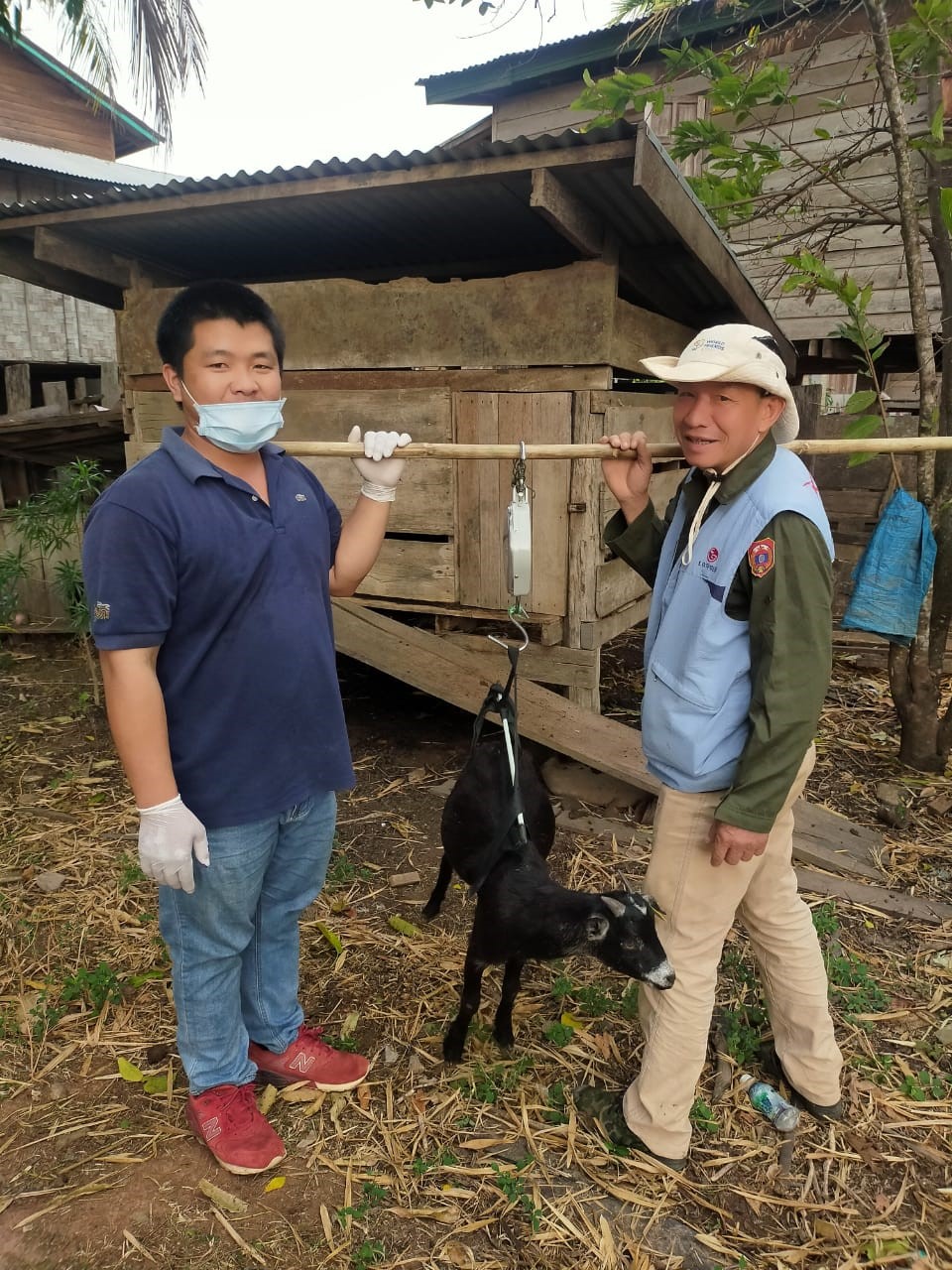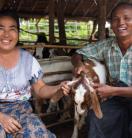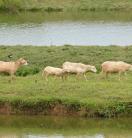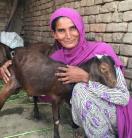Supporting Lao farmers to seize goat opportunities
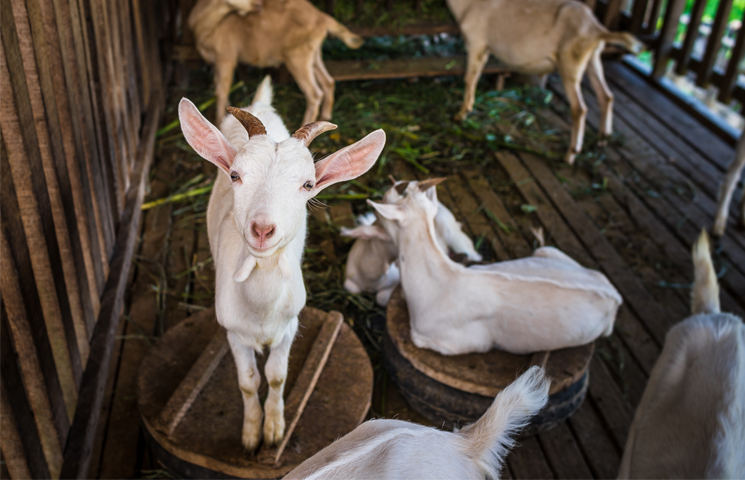
Demand for Lao goat meat has skyrocketed in recent years and an ACIAR-supported project aims to help smallholder farmers benefit from the trade.
ACIAR Research Program Manager for Livestock Systems, Dr Anna Okello, said this demand was driven by Vietnam, where goat meat is very popular and Laos produce enjoyed a reputation of being clean and green.
‘There has been a dramatic increase in goat numbers across Laos in recent years,’ Dr Okello said. ‘The increase in demand is a valuable opportunity for smallholder communities to increase their livelihoods significantly—but it needs to be sustainable.
‘Through this project, ACIAR and our partners are trying to understand whether the increased interest in goat production in Laos is an opportunistic response to increased demand, or if it is maintainable long-term, and what additional practices could be implemented to help safeguard and improve future production,’ Dr Okello said.
In recent months, the project team has completed the benchmarking survey, field-tested a prototype GPS tracking device, and strengthened ties with local farmers.
Project leader Professor Stephen Walkden-Brown, University of New England (UNE), said the team surveyed 70 families in seven villages in Savannakhet Province, in the country’s south.
‘The project team has measured performance in every herd, including their reproductive rates, growth rates and any diseases,’ Professor Walkden-Brown said.
‘They have also interviewed the farmers about socioeconomic factors, including attitudes, perceptions and who does the work.’
The information gathered will help identify opportunities to support smallholder goat farmers develop their enterprises, increase production and access markets.
ACIAR currently has three other projects about goat production systems: in Pakistan, Fiji and Samoa, and Myanmar. The project teams worked together to develop the surveys so data could be more easily compared between projects.
‘There is great potential for cross-learning from the four goat projects. Through them, we seek to contribute to the global knowledge both in how smallholder goat systems function and their importance to different parts of the community,’ Dr Okello said.
The Lao project team have already found that the goats are reproducing at a lower rate than expected, and steps to boost reproductive rate need to be implemented.
Dr Phonepaseuth Phengsavanh, Director of the Livestock Research Centre in Laos, said the project’s local veterinarian teams are also helping farmers diagnose and treat disease.
To gather information about the goats, including their grazing and mating habits, the team will fit goats with GPS devices. A team within the Precision Agriculture Research Group at UNE engineered GPS collars suited to goats in Laos.
‘The collars work under Australian conditions, and now we’re shipping 10 units to beta test them in Laos,’ Professor Walkden-Brown said.
‘By the end of the year, we want to roll out 40 of the GPS devices, and these will help us better understand how long goats are allowed to graze each day and how far they range, as in the Lao production system, goats are rarely kept behind fences. Understanding this is likely to have implications for the productivity of the goats.’
Professor Walkden-Brown said the GPS data plus DNA results will help the team understand if in-breeding is causing reduced fertility and growth or whether other constraints such as nutrition or disease are to blame.
With this deeper understanding, the project team will develop light-touch interventions across animal health, feeding and reproduction management to help farmers increase productivity and profits.
Dr Phengsavanh said this would include working with champion farmers to demonstrate the benefits of these interventions.
He said the project was also working with NGOs to create a “learning alliance” to help share the interventions with more farmers.
The key partners in the Goat Production Systems and Marketing in Lao PDR and Vietnam project are Charles Sturt University, University of New England, Lao National Agriculture and Forestry Research Institute and Lao National Animal Health Laboratory.



